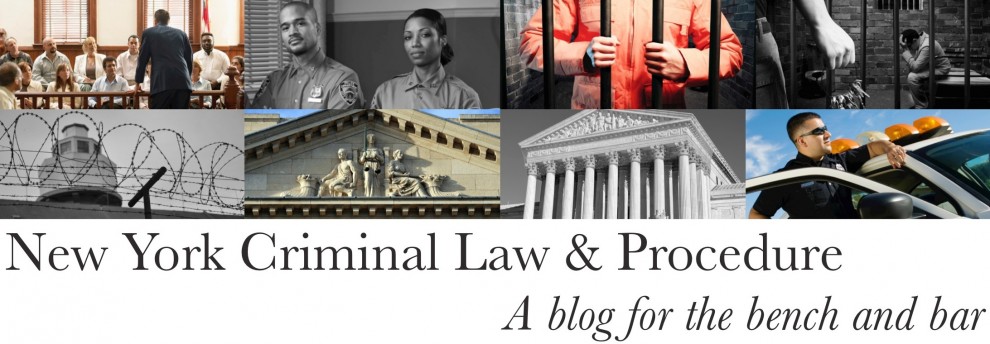People v. Hill (Ct. App. 5/2/2019) is an interesting case that highlights an important point about the DeBour four levels of police-citizen interaction.
This case involved a run-of-the-mill “clean halls” stop in NYCHA housing. The defendant was seen repeatedly entering and exiting a public housing building. The police stopped him and asked for his identification, which he provided. An officer took the ID to the apartment that the defendant was supposedly visiting; the occupant did not know the defendant. The defendant was arrested for trespass. During a search incident to lawful arrest, the police found 42 bags of crack cocaine.
The defendant argued that this was a Level 3 intrusion and required reasonable suspicion, which was lacking. The People argued that it was a Level 1 request for information, which required only an objective, credible reason.
The Court of Appeals agreed that, at the inception, the encounter was justified under Level 1 of DeBour. However:
the record demonstrates that the encounter thereafter rose beyond a level-one request for information, which the People failed to justify as lawful. Consequently, the People have failed to preserve any argument that the encounter in this case was justified under levels two or three of DeBour.
If I am reading the Court’s opinion correctly, the People failed to argue in the alternative before the motion court that, even if this was a Level 3 encounter, it was justified by reasonable suspicion. From a preservation point-of-view, both sides should always argue in the alternative in case a court concludes that a different DeBour level applies than the party originally asserts. (LC)



Reversal for right to public trial violation
In a very brief opinion, the First Department reversed the conviction in People v. Gray (1st Dept. 8/18/2011) because the trial court ordered the complete closure of the courtroom during the undercover's testimony. The Defendant requested that certain family members be allowed to stay, but the court summarily rejected the request without comment. Of particular concern to the First Department was that "the record does not otherwise show that the court considered whether there existed any reasonable accommodations that would have protected the public nature of the criminal proceedings." The court reiterated that "trial courts are required to consider alternatives to closure even when they are not offered by the parties."
The lesson for trial courts and for prosecutors is to make a proper record that explicitly considers alternatives to complete closure. (LC)
Leave a comment
Posted in Advice, App. Div. 1st Dept., Case Summaries, Commentaries, Constitutional Law